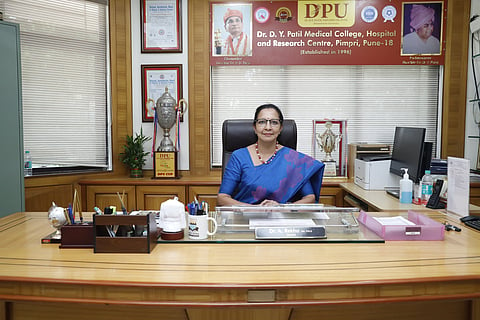

In the increasingly interconnected world of healthcare, global collaborations in medical education have emerged as an important aspect in addressing the ever growing demand for skilled professionals and advancing medical research.
The partnerships formed between educational institutions, research centres and healthcare organisations globally are not only reshaping the field but also preparing students to flourish in a globalised medical landscape.
Collaboration with global partners in healthcare education offers unparalleled advantages by fostering diverse perspectives, access to cutting-edge resources and opportunities for cross-cultural exchange.
Unlike medical colleges, which often focus on localised curriculum, global partnerships address worldwide challenges such as pandemics and health inequities through innovative research and policy influence. These collaborations also provide funding opportunities and access to advanced technologies, preparing healthcare professionals to navigate global healthcare systems effectively.
While medical colleges are essential for foundational training, partnerships with global partners broaden the scope and impact of education, equipping professionals to meet both regional and international healthcare demands.
The healthcare education sector is experiencing a growing need for global collaborations, particularly in fields beyond traditional medical colleges. Professions such as nursing, dental care, pharmacy, physician assistants, physiotherapy and occupational therapy are increasingly in demand, especially in Western countries.
This demand highlights the importance of fostering international partnerships to address workforce shortages and ensure quality training.
Medical colleges have traditionally dominated healthcare education, however, expanding focus to allied health disciplines can help bridge skill gaps. Collaborative efforts between institutions across the globe can improve access to resources, promote the exchange of knowledge and standardise curricula.
Global partnerships in healthcare education can thrive through platforms such as medical education webinars, discussion boards and online seminars. These collaborative initiatives provide opportunities for students, educators and professionals from diverse countries to share knowledge, discuss emerging trends and learn from global experts.
Webinars offer accessible learning experiences on current healthcare issues, while discussion boards foster ongoing exchanges of ideas and best practices. Health care partnerships in niche areas, such as highly specialised tests and reports are crucial for advancing the accuracy and efficiency of diagnostics and treatment plans.
Collaborating across borders allows for the sharing of advanced technologies, expertise and resources in specialised fields like genetic testing, molecular diagnostics, advanced imaging and rare disease diagnostics.
Research collaborations from bench to bedside are vital in fields like yoga, tuberculosis (TB), non-communicable diseases (NCDs) and targeted theranostics (which combines therapy and diagnostics). These partnerships bridge basic science with clinical application, accelerating the development of treatments and interventions.
International collaborations provide a lifeline to institutions grappling with internal funding constraints. Partnering with foreign universities helps access advanced facilities, diverse funding sources and state-of-the-art laboratories which can elevate the standard of education and research.
An inclusive and diverse student population enriches the campus environment, offering varied perspectives and fostering cultural exchange. Students from countries like India and China often bring a strong work ethic and unique insights.
Institutions benefit by integrating these students into their programs, enhancing global competitiveness. Programs like semester abroad options in rural healthcare settings offer students firsthand exposure to diverse healthcare challenges.
Faculty exchanges and cross-cultural collaborations among researchers also promote knowledge sharing and professional growth, fostering a global outlook. Global collaborations also contribute significantly to the value of the institution through enhanced perception, improved ranking and accreditation opportunities.
Global collaborations in medical education are essential for preparing the next generation of healthcare professionals. They bridge resource gaps, promote innovation and create opportunities for students and faculty to thrive in a globalised world. By fostering such partnerships, medical education institutions can redefine their role in addressing worldwide healthcare challenges and ensuring a healthier future for all.
(Dr Rekha Arcot is the Dean of Dr DY Patil Medical College, Hospital & Research Centre, Pimpri, Pune. Views expressed are her own)
